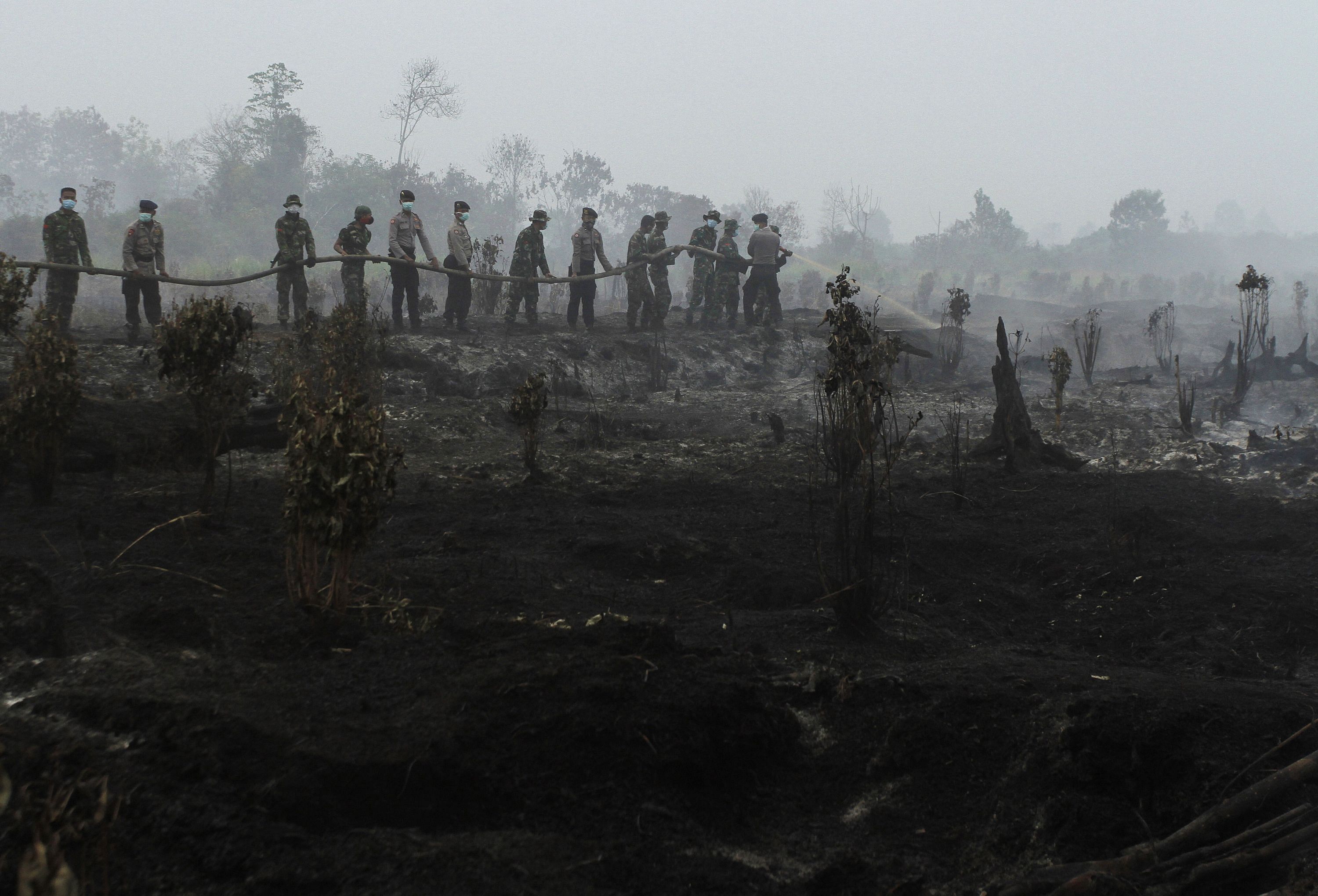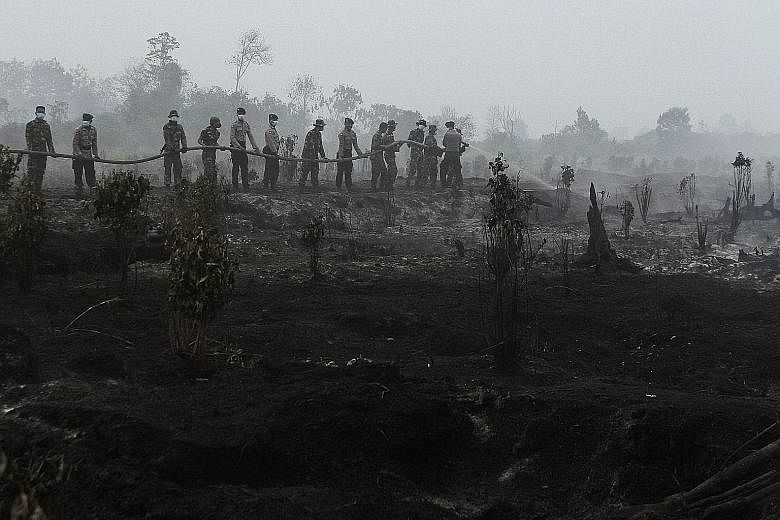As a regular visitor to Singapore, I have seen for myself the many attractions this fascinating country holds. In fact, I have been so won over by its charms that I will be moving here with my young family at the start of next year.
Singapore is, of course, a busy and at times frantic place. Having lived in London and spent time in nearly every major global capital, I know all about the pros and cons of living in a bustling, thriving and often noisy city.
But what I had not realised until late last month was that those living here regularly have to suffer the effects of an environmental disaster unfolding hundreds of miles away.
When I awoke on Aug 26 - during my most recent visit - and smelt the smoke, my first thought was to rush for the hotel's fire exit.
But looking out of the window and seeing the fog which had enveloped the city, I realised I was getting my first taste of the haze, which I had somehow managed to avoid, despite my many trips to the Lion City. I know that Singaporeans have long had to cope with this hazard, which is damaging to health and quality of life. But for a newcomer like me, the big question is how - in 2016 - is it possible that the annual haze continues to plague not just Singapore, but much of South-east Asia?

I recognise I come to this as an outsider not involved in the decades of effort and frustration to lift this shadow over everyday life. But in my day-job as a researcher and government adviser, my focus is how nations can generate and leverage soft power to achieve their international ambitions. It strikes me that lifting the haze for good may only be achieved by the shrewd deployment of soft power.
The term was first coined a generation ago by Harvard professor Joseph Nye to describe the use of attraction and persuasion to influence others in pursuit of foreign policy goals, rather than using the traditional hard foreign policy tools of military and economic power.
The good news is that Singapore has remarkable reserves of soft power. It is by far the smallest country to be included in the Soft Power 30 Index - the most comprehensive guide to the subject - and this year rose one place to stand at 19th in the table. As I wrote in The Straits Times in June, this puts Singapore above countries with huge populations such as China, Brazil and Turkey.
But how can these formidable soft power reserves be better used to end the blight of the haze? Let me give you two examples of the way it can be used in both a soft but also a more hard-edged way.
First, Singapore's appeal to other countries and their citizens can help it coordinate and step up collaborative efforts throughout the region to help Indonesia combat illegal forest fires.
This would involve not only contributing to fire-fighting operations but also working to tackle the causes of the problem through development, educational, and regulatory initiatives.
This is a difficult balancing act. I have no doubt there is a huge level of exasperation at Indonesia's failure to stop these destructive fires. But the urge to lecture or dictate must be resisted and Singapore instead should simply use its good offices to be a catalyst for genuine regional cooperation. This is a problem that affects the health, well-being and development of the whole region, not an isolated problem for Singapore. This is how it must be approached.
The second option is more direct and confrontational but still harnesses soft power. If Indonesia is not willing to address the root causes of the illegal forest fires that not only damage health but contribute significantly to global climate change, Singapore needs to mobilise a global coalition to persuade it to take the problem more seriously.
The recent ratification of the Paris Agreement by the United States and China, the world's two largest greenhouse gas producers, marks a turning point in the battle against climate change and a huge victory for soft power. Singapore could use this momentum to build a coalition of states and civil society groups to raise international public concern about the impact of forest fires on our environment and hopes of reducing greenhouse gases.
I do not mean to suggest that Singapore should directly push for global economic sanctions or a boycott of the products of Indonesia's palm oil industry. It is not fair to single out one country when other sectors and international companies are also responsible for illegal forest fires. But by helping lead a global public debate, Singapore can help ramp up international attention and pressure from governments and consumers around the world.
The ideal outcome is that Singapore successfully pursues option one and works collaboratively with the whole of the region and Indonesia to bring about an end to the annual haze.
But if not, Singapore needs to be ready to play hardball with its soft power for the benefit not only of its own citizens but also the entire region. In doing so, it can be a champion for all people vulnerable to the threats of climate change around the world.
•The writer is a partner at Portland Communications in London. The global communications group recently launched its second Soft Power 30 Index.

